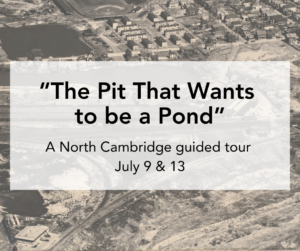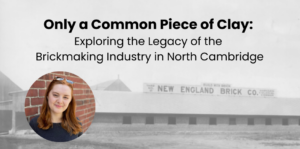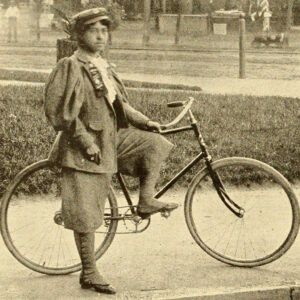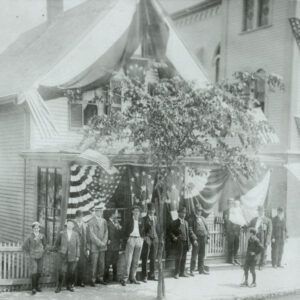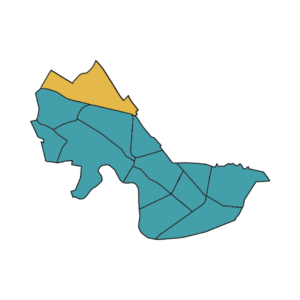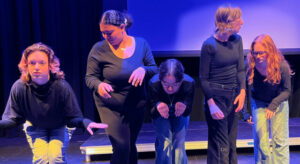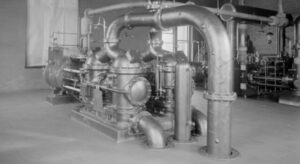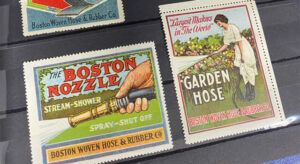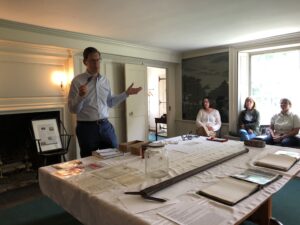Posts Tagged ‘industry’
The Pit That Wants to be a Pond: An Industrial and Environmental Tour of North Cambridge
Thanks to everyone who came out to learn more about North Cambridge through an industrial and environmental lens. We were pleased to be joined by Eric Grunebaum to learn more about the history of Jerry’s Pit. We appreciated everyone’s insights and great questions! This tour will explore the development of North Cambridge through the lens…
Read MoreWatershed: An Excursion in Four Parts
by Emily HiestandFirst published by The Georgia Review and Beacon Press in 1998. Updated slightly in 2021 for publication in This Impermanent Earth, and in 2024 for History Cambridge. Part One | Street Like travelers who want to keep some favorite place from being overly discovered, the residents of our neighborhood sometimes confide to one another in a near-whisper, “There’s no…
Read MoreMay 8: Only a Common Piece of Clay: Exploring the Legacy of the Brickmaking Industry in North Cambridge
Just how big of a role did brick play in the history of North Cambridge? Join Cambridge resident Josie Kuchta for an exploration of the topic. As a recent Wellesley College graduate, Josie has explored architecture through an interdisciplinary lens, critically examining the cultural and environmental context of the built world. In her senior honors…
Read MoreIndustrial Age Cambridge supported bicycling, but with the genders and races together? Egads!
It seems there’s always been reasons for bicycling to be controversial in Cambridge, starting in the late 19th century when cycling gained popularity in Cambridge – and the nation as a whole – as a form of exercise and opportunity for social connection.
Read MoreA new year, and History Cambridge puts focus onto a new neighborhood: North Cambridge
History Cambridge embarked on programming in 2023 that focuses on one of Cambridge’s 13 neighborhoods each year, and for 2024 it’s North Cambridge.
Read MoreNorth Cambridge History Hub
North Cambridge History Hub
Read MoreSummer play with teens set at Foundry of 1911 gave power to workers left out of history books
The cast and crew of “We Were Here” saw an opportunity to go beyond the written record to explore the lives and experiences of these women – as workers, but also as mothers, daughters, sisters and friends.
Read MoreNew play at Foundry explores a century-old story of women, work and immigration in Cambridge
Women workers at Blake & Knowles Steam Pump in East Cambridge were controversial in 1911. Their story will be staged at that same Foundry this year.
Read MoreHoses, mats, conveyor belts and brass nozzles were all Kendall innovations of one company
The Boston brand of industrial hose saw a rebirth last summer, including its famous bulldog logo. This great corporate citizen of Cambridge has a legacy of industrial rubber products that has lasted more than 150 years.
Read MoreJune 7: Open Archives 2023: Born in Cambridge
On June 7, 2023, the staff of History Cambridge and special guest Mike Kuchta hosted Open Archives at the historic Hooper-Lee-Nichols House
Read More
